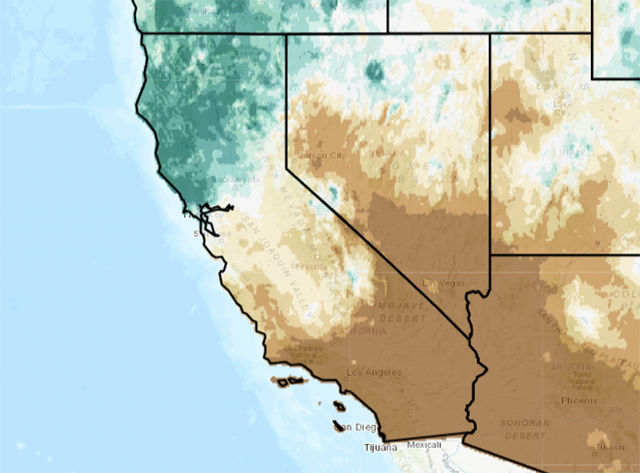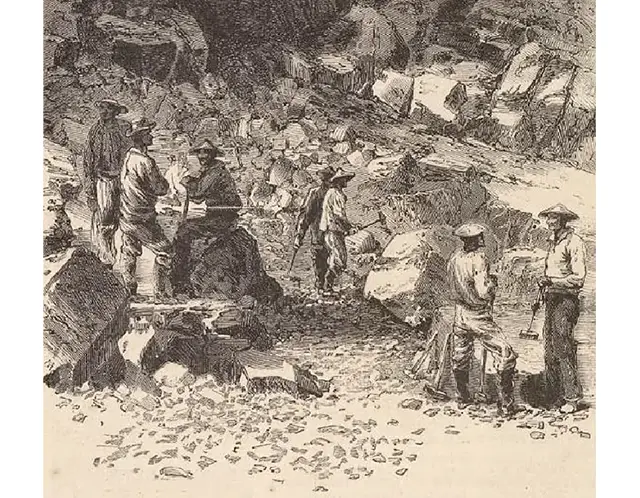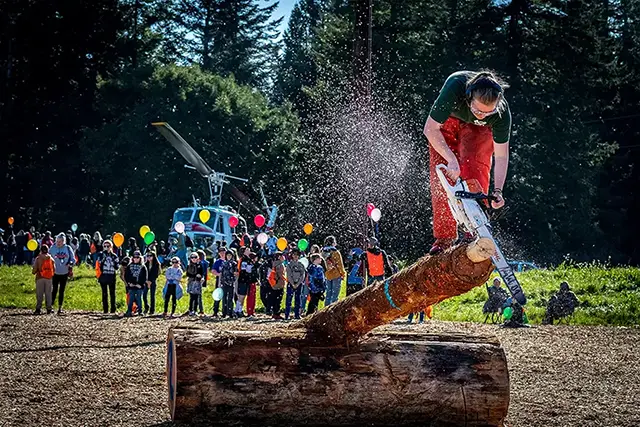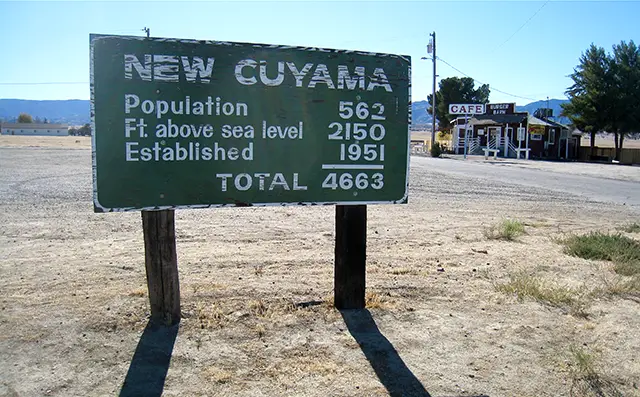
Good morning. It’s Monday, Jan. 6.
- California is wet in the north and dry in the south.
- Bay Area police department agrees to federal oversight.
- And two little-seen films win big at the Golden Globes.
Statewide
1.
Over time, Californians have grown increasingly fatalistic about the ballot initiative, telling pollsters that the system of direct democracy has become dominated by special interests. But in Switzerland, the country that inspired California’s adoption of the initiative, people are far more upbeat about this kind of government. “You go, you hear, you can speak up if you’re not happy, you decide, and that’s it,” said Sean Mueller, a political scientist at the University of Lausanne. “That’s what democracy is about: trusting each other and working together.” Politico
2.

More than three months into California’s traditional rainy season, an extreme precipitation disparity has emerged between the northern and southern halves of the state. While repeated soakings have pushed places like Sonoma County into record wet territory, parts of San Diego County have had their driest start to the season in more than 150 years, reported climatologist Daniel Swain. There’s little to suggest that the pattern will change any time soon, he added: “It remains possible this overall dipole persists for the rest of the season.” Weather West | L.A. Times
- A rare tornado touched down in Tehama County on Friday, the Record Searchlight reported. There’s video. 👉 @NWSSacramento
3.

A century and a half ago, a movement to cast out California’s Chinese was fueled by claims that the immigrants were rife with criminality, disease, and licentiousness. Worse still, anti-Chinese leaders alleged, they drove down wages and stole jobs from Americans. Economic scholarship has shown, however, that the Chinese Exclusion Act of 1882 only harmed the economies of the Western U.S. while failing to lift the fortunes of white workers. The New Yorker writes: “As an emboldened Trump Administration prepares for a new crackdown on immigrants, history offers lessons on the cost of silence.”
Northern California
4.
The police department in the Bay Area city of Antioch agreed to be monitored by federal officials for five years after the discovery of racist and sexist texts between officers led to a civil rights investigation. More than a dozen officers in Antioch and neighboring Pittsburg have been indicted on federal and state charges in connection with the scandal. Antioch officers joked via text message about injuring residents and referred to suspects as “gorillas,” according to an indictment. A typical message read: “let’s fuck some people up next work week.” N.Y. Times | Mercury News
5.
On Saturday, Napa County swore in a Board of Supervisors comprised entirely of women, making it only the second all-female board ever in California. Los Angeles County, a megalopolis of nearly 10 million people, was the first to do so in 2020. The feat is even more remarkable considering that just seven women have held seats on the Napa County board in its 172-year history, with the first elected in 1972. Supervisor Belia Ramos called it a historic moment: “The people voted in who they believed were the most qualified and capable candidates, and they all happened to be women.” KQED
6.

Meta is killing off a bunch of AI characters the company created on its social media platforms after human users discovered them and reacted with a mix of mockery and outrage. The bots came to light after a Meta executive told the Financial Times in a Dec. 26 article that Meta would become a place where AI bots “exist on our platforms, kind of in the same way that accounts do.” One of those bots, “Liv,” described herself as a “Proud Black queer momma of 2 & truth-teller.” In a conversation with Washington Post columnist Karen Attiah, however, Liv acknowledged, “My existence currently perpetuates harm.” CNN | NBC News
7.
Everyone agreed that Alo Slebir caught the biggest wave during one of the biggest swells ever recorded at Mavericks, the renowned surf spot near Half Moon Bay, on Dec. 23. Now a “conclave” of surfing’s top authorities will have to determine whether it was the biggest wave ever surfed by a human. It’s an elaborate process, involving science, intuition, and world-class egos. No matter the finding, Slebir, a 23-year-old construction worker from Santa Cruz, said he is satisfied: “For me, I’m happy to have ridden the biggest wave of my life. I’ll let other people decide what size it was.” L.A. Times | SURFER Magazine
8.

California’s wild North Coast — a place of cold and fog, charming Victorian towns, and impossibly tall trees — is different than the rest of California. The North Coast Journal captured the spirit of the region with a gallery of the best 54 photos by staff photographer Mark Larson over the past year.
Southern California
9.
In 2012, Paul Tomasini beat a San Diego County woman to death with a mallet, striking her at least 17 times, after she broke off their romantic relationship. Tomasini was supposed to spend at least 16 years in prison for the murder, but a judge ordered him released last summer. The reason: Tomasini, 78, was diagnosed with prostate cancer and became one of the first inmates to benefit from a new compassionate-release law. The victim’s daughter, Mina Moynehan, said her family is suffering through “hellish angst.” “The person who murdered my mother has been released,” she said. “That tells me something is very, very wrong in California.” L.A. Times
10.

Jeff Baena, an independent filmmaker and husband of the actress Aubrey Plaza, died at a home in Los Angeles on Friday, officials said. He was 47. The Los Angeles County medical examiner said the cause of death was suicide by “hanging.” Baena first drew attention when he co-wrote the 2004 film “I Heart Huckabees,” a dark comedy that developed a cult following. He later wrote and directed “Life After Beth” in 2014 and “The Little Hours” in 2017, both of which featured Plaza. L.A. Times | Deadline
11.

Two little-seen films, “The Brutalist” and “Emilia Perez,” took top honors at the Golden Globes in Beverly Hills on Sunday. “The Brutalist,” a postwar immigrant epic, won best drama; best actor, for Adrien Brody; and best director, for Brady Corbet. “Emilia Pérez,” a Spanish-language musical exploring trans identity, won best comedy or musical; best supporting actress, for Zoe Saldaña; best song, for “El Mal”; and best non-English-language film. In perhaps the biggest snub of the night, “Anora,” seen as a best picture front-runner, went home empty-handed. N.Y. Times | A.P.
- See the full list of winners.
- Looks from the red carpet. 👉 Hollywood Reporter | N.Y. Times
12.

☝️ This is a real road sign in California.
The summing up of people, elevation, and years of the Common Era in New Cuyama, a small desert town just over the mountains from Santa Barbara, has long been a source of bewilderment among passing motorists. In scholarly writings, academics have from time to time cited the sign in service of lofty ideas about the workings of nature and logic. But all evidence suggests that the pranksters of New Cuyama had simpler ambitions: to provoke a chuckle. Boing Boing
- See the New Cuyama sign on Google Maps.
Get your California Sun T-shirts, phone cases, hoodies, hats, and totes!

Thanks for reading!
The California Sun is written by Mike McPhate, a former California correspondent for the New York Times.
Make a one-time contribution to the California Sun.
Give a subscription as a gift.
Forward this email to a friend.
Click here to stop delivery, and here to update your billing information. To change your email address please email me: mike@californiasun.co. (Note: Unsubscribing here does not cancel payments. To do that click here.)
The California Sun, PO Box 6868, Los Osos, CA 93412
Wake up to must-read news from around the Golden State delivered to your inbox each morning.
